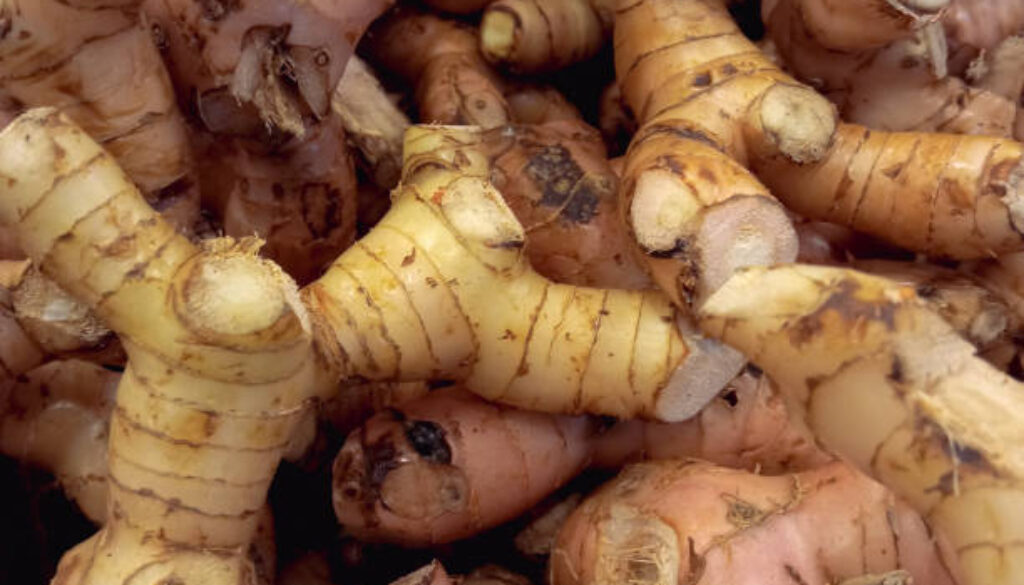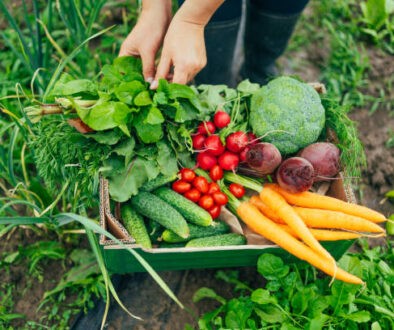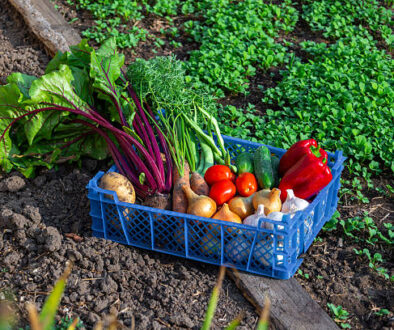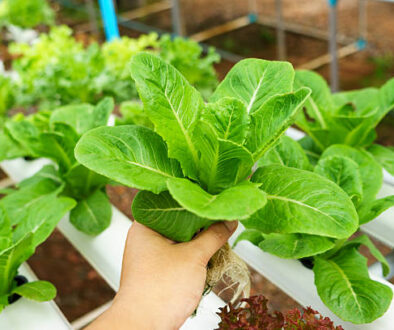The 7 Most Crucial Culinary and Medicinal Herbs You Should Grow in Your Backyard
Quick Disclaimer: This post may contain affiliate links, meaning if you purchase a product through those links, I may receive a small commission with no extra cost to you. Thanks for your support to my work! I only Recommend Products I Trust!
MoreWith a little care, these herbs can thrive in pots, raised beds, or a small corner of your yard.
Now, let’s make your backyard your new go-to source for flavor and wellness.
Related:
- 18 Most Powerful Medicinal Herbs You Should Grow in Your Backyard: Must-Have Medicinal Plants
- 15 Beginner-Friendly Herbs To Grow In Your Garden: Herbalism for Beginners (Start Your Herbal Journey Now!)
- 16 Most Powerful Healing Plants for Pain Relief: Natural Healing Herbs Medicine
1. Rosemary – Flavor and Focus in One Plant
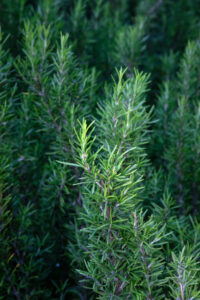
Rosemary is more than just that fragrant sprig you stick on roast chicken; it’s one of the most useful herbs you can grow.
In the kitchen, it adds an earthy, pine-like flavor that can instantly make a simple dish taste like something from a fancy restaurant.
💡Quick Note: Learn How To Transform A Typical Money-Draining House Into A Tiny Profitable Off-The-Grid Homestead. Click Here To Get Started Now!
But in traditional medicine, rosemary has been valued for centuries.
People use it to help with memory, focus, and even digestion.
Ever smelled fresh rosemary and felt instantly refreshed?
That’s because its aroma can boost alertness and clear your mind.
Growing rosemary is simple once you give it the right conditions.
It loves sunshine, at least 6 hours a day, and needs well-drained soil.
You can grow it in a pot or straight in the ground.
Keep it lightly watered, and it will reward you all year with fresh sprigs.
Snip small amounts often; regular trimming keeps the plant healthy and bushy.
And honestly, once you taste food made with fresh rosemary, you’ll never want the dried stuff again.
2. Basil – The King of the Kitchen and a Health Booster
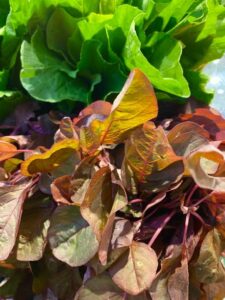
Basil is the ultimate summer herb. Its sweet, peppery aroma can transform pasta, salads, and even simple toast into something mouthwatering.
But basil isn’t just a flavor superstar; it’s packed with antioxidants, making it a natural support for your health.
In some herbal traditions, basil tea is used to help ease stress and calm the nerves.
So yes, this little green leaf can do more than make your pizza taste amazing.
Basil loves warm weather and plenty of sun.
Keep the soil moist but not soggy, and pinch off flowers as they appear to keep the leaves tender and flavorful.
You can grow it right next to your tomatoes for the perfect garden friendship, both in flavor and in growth.
💡Quick Note: 🌼Don’t You Dare To Miss Out On This Kit! The Medicinal Garden Kit is a Must-Have for Your Garden. Click Here to Access Now!
Whether you’re making pesto or adding fresh leaves to a sandwich, having basil on hand means your meals always have that fresh, vibrant kick.
3. Mint – Cool, Refreshing, and Medicinal
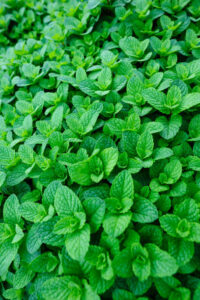
Mint is the kind of plant that basically says, “I’ve got this.”
It grows fast, spreads easily, and gives you an endless supply of fresh leaves.
Use it in drinks, desserts, or savory dishes, it’s as versatile as it is refreshing.
Medicinally, mint is known to soothe stomach troubles, freshen breath, and help clear sinuses.
Ever had a mint tea on a cold day? You know how comforting it feels.
One thing to know, mint likes to take over.
If you plant it in the ground, it will spread like wildfire.
The best solution? Grow it in a pot to keep it contained. It thrives in partial sun and moist soil.
Just snip what you need and let it keep growing. With mint in your garden, you’ve always got a quick way to make meals brighter and your health routine a little tastier.
4. Thyme – Small Leaves, Big Power
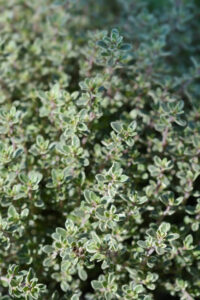
Don’t underestimate thyme just because its leaves are tiny.
This herb packs a punch in both cooking and medicine.
Thyme adds a savory, slightly minty flavor to soups, meats, and roasted vegetables.
💡Quick Note: Learn How To Transform A Typical Money-Draining House Into A Tiny Profitable Off-The-Grid Homestead. Click Here To Get Started Now!
In herbal remedies, it’s valued for its antibacterial properties and has been used to help with coughs and respiratory issues.
It’s one of those medicinal herbs that quietly works hard behind the scenes.
Thyme is a low-maintenance plant that thrives in sunny, dry spots.
Once established, it’s drought-tolerant, so you won’t be watering it every day.
Regular harvesting keeps it full and lush. You can grow different varieties, lemon thyme adds a citrusy twist, while English thyme is more classic.
Either way, having thyme in your garden means you’re never far from adding bold flavor to your meals and subtle health benefits to your daily life.
5. Lavender – Beauty, Aroma, and Healing
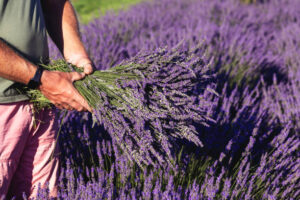
Lavender is the showstopper of any herbs list. Its purple flowers and calming scent make it a garden favorite.
Beyond looking pretty, lavender has serious health benefits.
t’s often used to ease anxiety, improve sleep, and reduce headaches.
You can dry it for sachets, brew it into tea, or infuse it into oils for natural remedies.
Lavender thrives in sunny spots with well-drained soil. It hates soggy roots, so plant it where water doesn’t sit.
Once it’s established, it’s drought-tolerant and easy to care for.
Harvest the flowers when they’re fully open for the best fragrance and potency.
Whether you’re growing it for beauty, aroma, or its medicinal uses, lavender will make your garden, and your mood, feel brighter.
6. Oregano – Flavor and Immunity Support

If you love Italian or Mediterranean cooking, oregano is a must-have.
Its bold, slightly peppery flavor makes sauces, marinades, and roasted vegetables irresistible.
But oregano isn’t just tasty, it’s one of the most powerful medicinal herbs for immunity.
It contains compounds that may help fight infections and inflammation.
Oregano thrives in sunny, warm conditions and prefers soil that drains well.
Let the soil dry slightly between waterings, and it will keep producing flavorful leaves.
Harvest regularly to encourage new growth. Fresh oregano is stronger than the dried version, so you’ll find that just a few leaves can change an entire dish.
💡Quick Note: 🌼Don’t You Dare To Miss Out On This Kit! The Medicinal Garden Kit is a Must-Have for Your Garden. Click Here to Access Now!
With this plant in your backyard, you’ll always have a little immunity boost within arm’s reach.
7. Parsley – More Than a Garnish
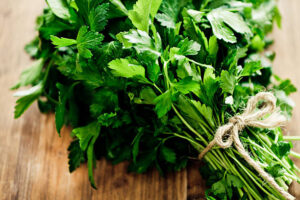
Parsley often gets overlooked as “just a garnish,” but it’s actually loaded with vitamins and minerals.
It’s a great source of vitamin C, vitamin K, and iron. In traditional medicine, parsley has been used to help with digestion and reduce bloating.
It’s also a great breath freshener, just chew a leaf or two after a meal.
Parsley grows well in cooler temperatures and prefers rich, moist soil.
Snip leaves from the outside of the plant so it keeps producing.
You can grow flat-leaf (Italian) parsley for stronger flavor or curly parsley for a milder taste and decorative look.
Either way, it’s worth growing for both cooking and health benefits.
Next time you see parsley on your plate, you might think twice before pushing it aside.
Conclusion
Growing these 7 herbs in your backyard means you’re never far from fresh flavor and natural medicine.
From the rich aroma of rosemary to the calming scent of lavender, each plant brings its own set of benefits for your kitchen and your health.
Plus, there’s something deeply satisfying about stepping outside and picking exactly what you need.
These plants are easy to grow, beautiful to look at, and endlessly useful, whether you’re making dinner or mixing up a home remedy.
FAQs
- Can I grow these herbs indoors?
Yes! As long as they get enough sunlight (at least 4–6 hours a day) or a good grow light, most of these herbs will do well indoors. - Do medicinal herbs lose their benefits when dried?
Some potency may decrease, but most medicinal qualities remain. Dry them properly and store them in airtight containers away from light. - Which herbs are easiest for beginners?
Mint, basil, and parsley are great starter herbs because they grow quickly and don’t need complicated care.
4. How often should I water my herbs?
It depends on the plant, but generally, water when the top inch of soil feels dry. Overwatering is more dangerous than underwatering for most herbs.
